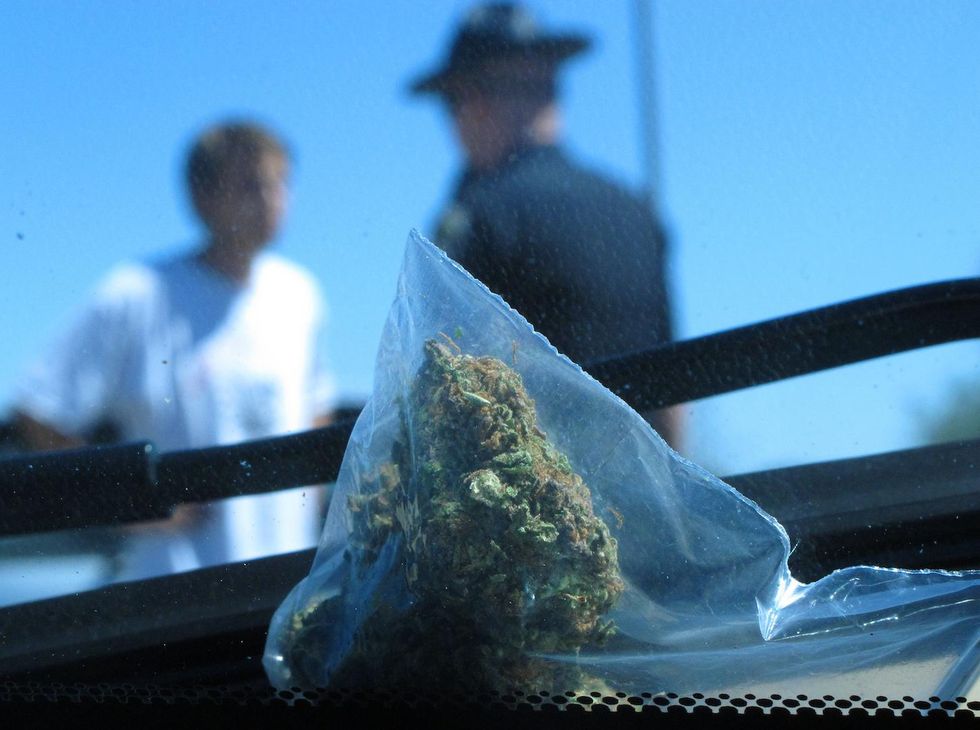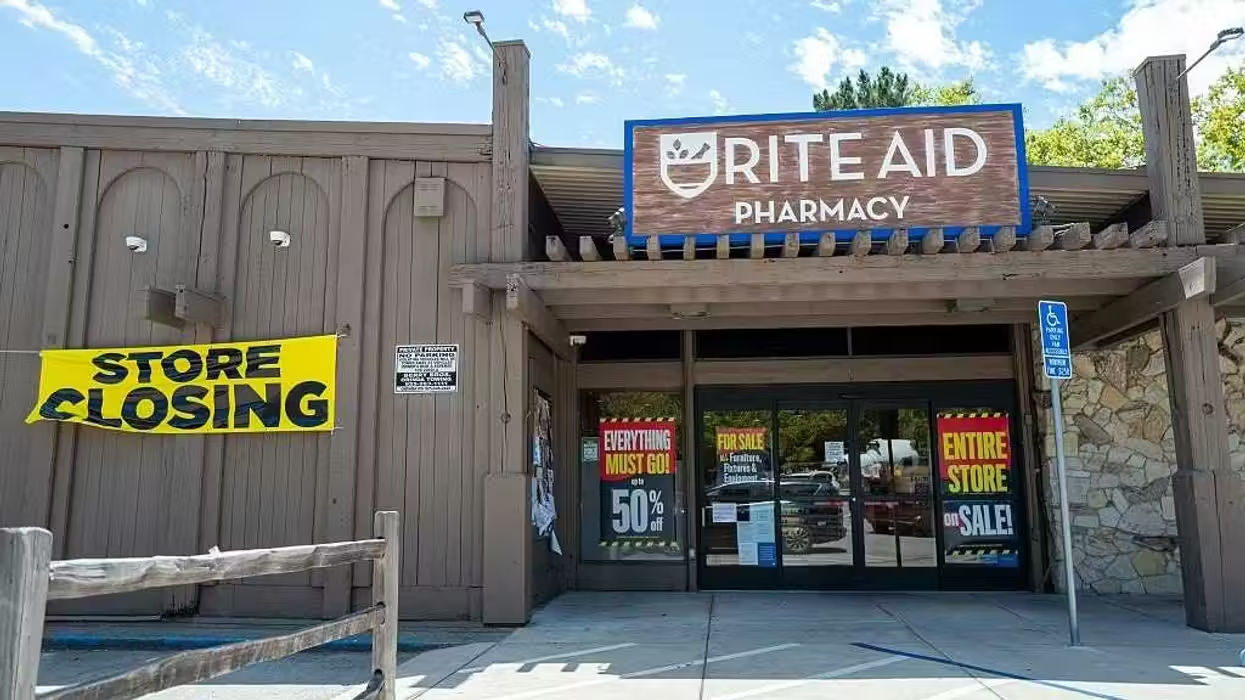
In this photo taken Wednesday June 20, 2012, David Kosmecki, left, talks to Idaho State Police Trooper Justin Klitch in Fruitland, Idaho. Kosmecki was stopped and charged with possession of marijuana after leaving Oregon. As the Evergreen state works out the various complications of its new law, including the fact that marijuana is still illegal under federal law, neighbors of Washington are watching with curiosity, and perhaps some apprehension. Idaho officials already have their hands full with Idahoans obtaining medical marijuana cards out of state. The Gem State borders three medical marijuana states, a reality that has caused medical marijuana arrests to outpace those of traffickers or other users. Although Idaho is a largely conservative state, there are pockets defined by borders and demographics that could create new challenges for law enforcement. (AP Photo/Nigel Duara)






